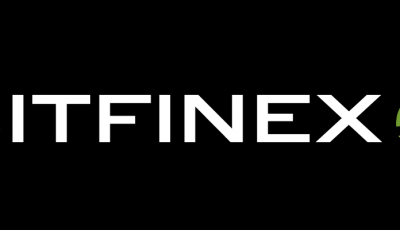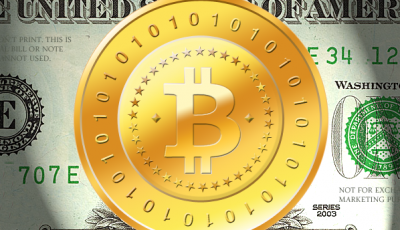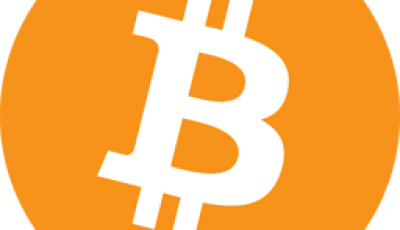A World of Pure Imagination
 When the Bitfinex attack happened it sent ripples through the bitcoin community. Bitfinex was and is a leading exchange in the bitcoin space, offering liquidity in a market dominated by suspect trading volume and practices. The amount stolen from Bitfinex is somewhere in the neighborhood of $72 million, a potential death knell for the exchange service. Emerging from the other side of the hack, the team at Bitfinex could have closed up shop, opting for a traditional business approach of declaring bankruptcy or just ceasing operations while an investigation was conducted. But this is the bitcoin ecosystem, so why behave like a normal company?
When the Bitfinex attack happened it sent ripples through the bitcoin community. Bitfinex was and is a leading exchange in the bitcoin space, offering liquidity in a market dominated by suspect trading volume and practices. The amount stolen from Bitfinex is somewhere in the neighborhood of $72 million, a potential death knell for the exchange service. Emerging from the other side of the hack, the team at Bitfinex could have closed up shop, opting for a traditional business approach of declaring bankruptcy or just ceasing operations while an investigation was conducted. But this is the bitcoin ecosystem, so why behave like a normal company?
Instead, the course of action preferred by the leadership at Bitfinex was to issue tokens to affected users. This is important because it amounts to issuing debt that the exchange is responsible for repaying, either in dollars or bitcoin, or in equity like the initial announcement suggested. Impoverished Bitfinex users, likely excited at the prospect of an equity stake in a leading firm like Bitfinex greeted this with excitement. Unlike previous exchange disasters, this time the users were being compensated. But this is the bitcoin ecosystem, so why should you simply compensate affected users?
Opting to try something different, Bitfinex informed users that they would accept a 33% loss, dollar to dollar, between balances they had in the exchange and tokens they would receive. To add insult to injury, these tokens would be tradable on the exchange, meaning their value was in no way guaranteed. A user with a large number of tokens therefore accepted massive risk in accepting them because there is no guarantee that they would hold any significant value in the future. An unregulated market for an illiquid asset hosted in only one place run by a company with a vested interest in reducing the asset’s value as much as possible. What can go wrong?
As if things couldn’t get any crazier, the crazy train continues to travel onward. The team at Bitfinex, in order to preserve their ownership of the company, partnering with a new bank-like entity, arbitrarily valued their firm well above a reasonable estimate in order to dilute the equity that would be paid to affected users. No outside audit. No professional valuation. A secret, internal calculus that managed to ensure that users received close to zero on their losses. If Bitfinex goes bankrupt after redeeming all these tokens for “equity” users will be holding exactly zero dollars. In court, Bitfinex could claim that users accepted the tokens as recompense so no further payments are warranted. Token users also agreed to less than beneficial terms, limiting token exchanges and sales.
Here’s a scenario worth evaluating. The company behind Bitfinex could have simply stolen $72 million worth of cryptocurrency, and through either an idiotic or ingenious method depending on how you look at it, reduced their liability for the hack to nothing but made up “equity” in a company that may or may not ever pay dividends or profits to “equity” owners. That’s a pretty successful robbery when you consider it. In what is possibly more incredible users have accepted the terms without any real counteraction. For reference, firms like Valeant and Volkswagen are facing litigation for reducing shareholder value and poor corporate governance, so where are the lawyers looking to litigate Bitfinex? Companies that hold users’ assets owe a fiduciary duty to those users, but the status quo in bitcoin has been the exact opposite. This trend continues with the hubris shown by Bitfinex in systematically reducing their liability owed to users.
Users of bitcoin and exchanges are somewhat immune to the outrage of being hacked or losing funds through some bizarre way. It’s been a recurring and almost accepted trend. In their ideological quest for less government intrusion believers sacrifice many of the protections provided by governments. The pact that governments make with those they govern include safeguards and means of equitable relief, not so in the wild west of bitcoin. The problem with reinventing the wheel in a world where the wheel exists is that every bump brings to light a practical problem that modern finance has already solved. For bitcoiners, solving the larger ideological problem of avoiding fiat money has opened them up to a world of mundane, and very avoidable crypto problems. A world of pure imagination.
Image credit – Public domain image by Satoshi (Source)












